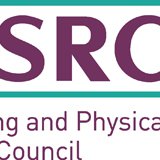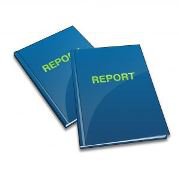Research IT News
EPSRC Research Software Engineer Fellowships Call


EPSRC has announced a call to support Research Software Engineer (RSE) Fellowships for a period of up to 5 years. The Fellowships are open to exceptional individuals in the software field who demonstrate leadership and have combined expertise in programming and a solid knowledge of the research environment.
Deadline for Research Infrastructure Procurement

The University end of financial year is rapidly approaching and, as usual, Research IT anticipates making a procurement for the Central Shared Facility (CSF) and other Research Infrastructure platforms, such as the DPSF and iCSF, at this time. Thank you to those researchers who have already committed funds!
Call for Participation – Mathematica Summer Workshop


Research IT is organising a Mathematica Summer Workshop at the University of Manchester on the 27th – 29th of June 2017. This will be an opportunity to bring the regional Mathematica user community together to exchange experiences and showcase research projects and teaching experience involving Mathematica.
Research IT Drop-in Sessions


The drop-in session dates for May have just been announced! We’ve really enjoyed hearing about your research and helping researchers from across the Faculties tackle their Research IT issues. Come along and see if we can help boost your research!
Welcome to the new Head of Research IT


Research IT is pleased to welcome Dr Angus Hearmon who has recently joined as Head of Research IT.
Research IT Club - May


The next Research IT Club will be held on the 10th of May and will feature a welcome from the new Head of Research IT, Angus Hearmon as well as updates from our research infrastructure and software engineering teams. To attend the event please register so we know how much coffee to order in!
State of the Nation report on Research Software Engineers


If you are wondering where the term “Research Software Engineer (RSE)” came from then a new report could help to explain. The first State of the Nation Report for Research Software Engineers provides a history of the RSE campaign and a snapshot of the RSE community as it stands today.
Call for Access to the European HPC Service (PRACE)


PRACE has recently announced its 15th Call for Proposals for Project Access. The current call provides access to various European Tier 0 systems from Bull, Cray, Lenovo and IBM. These comprise a mixture of standard x86, Knights Landing and GPU platforms. Joint submissions from academia and industry are particularly welcome.
Research IT Grant Support Clinic - May


Research IT offers a range of services to UoM researchers such as high performance computing and software consultancy but how do you know if these services are relevant to you and your research? If they are how do you describe them and cost them correctly in your grant proposal?
Data Visualization Equipment Expertise Available

Touchscreens are very popular for research data visualization but any system deployed must work smoothly and intuitively. There are a wide range of systems available - from expensive purpose-built systems for exhibitions to simple tablet/phone software options available for touching and manipulating data. How do you know which one to choose?
The Environmental Impact of your Shopping


Have you ever wondered if your shopping habits could be influenced? Do you buy the same groceries every week? Would extra information allow you to make informed choices when you do your online shop? Research IT helped a group of researchers who were trying to see if they could make consumers change their mind.
Registration open - Advances in Data Science


Registration is now open for this year's Advances in Data Science 2017 conference. The event is a two-day meeting to present recent developments in data science, with a focus on advanced analytics (machine learning, Bayesian statistics, scalable algorithms), privacy, visualisation, software and diverse applications. Speakers include leading data scientists from industry and academia.
